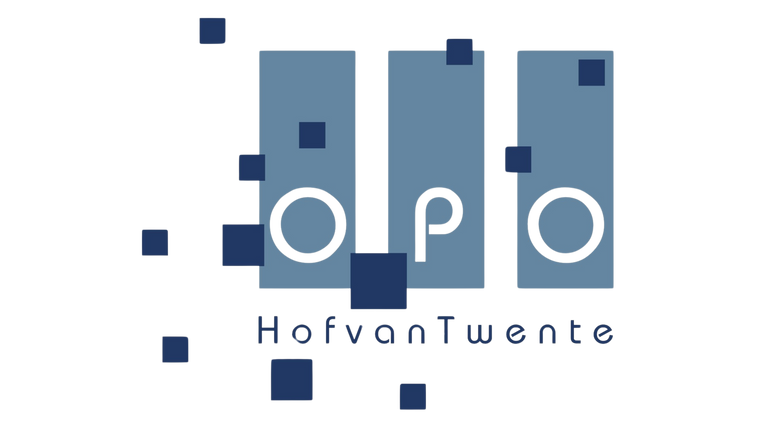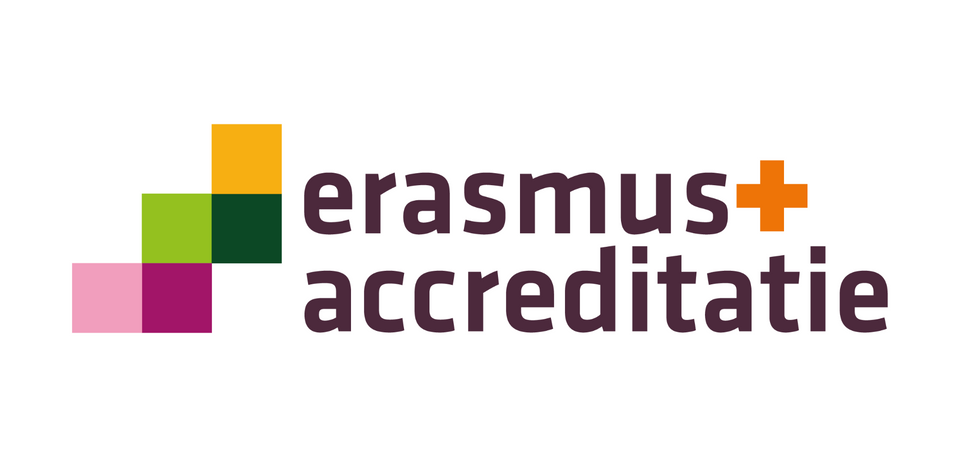Teachers within OPO Hof van Twente go on study trips, and groups of students can travel across Europe! This is possible because OPO Hof van Twente, with its nine schools, has received a KA1 Erasmus+ Accreditation from the National Agency of the Netherlands (Nuffic).
From 2022 to 2027, the teaching staff, supported by the internationalization coordinator (Ms. N. Atabek), will benefit from a wide range of opportunities to develop their educational plans with a long-term perspective, rather than focusing on short-term details and daily management tasks.
Funded by the EU through Erasmus+, OPO Hof van Twente employees can travel throughout Europe to observe best practices, attend courses for professional growth, engage in projects with their students, and initiate internationalization activities, inviting European schools to visit and learn about their innovative education.
Students can also visit schools in other countries, experiencing the diversity of European cultures.
The benefits of the KA1 Erasmus+ Accreditation:
The KA1 Accreditation offers OPO Hof van Twente schools the opportunity to collaborate with other schools across Europe, allowing them to exchange ideas, knowledge, and best practices. The program aims to improve the quality of education by encouraging cooperation and partnerships between European schools. This accreditation is particularly beneficial for primary schools, as it provides a range of advantages that can positively impact students, teachers, and the entire school community.
Improvement of educational quality:
Erasmus+ Accreditation promotes the exchange of best practices and innovative ideas, enabling primary schools to enhance their educational quality. Schools can learn about the latest teaching methods, innovative educational techniques, and effective strategies for teaching various subjects. They can also collaborate with schools that have expertise in areas where they lack experience. Through this program, primary schools can improve their teaching practices and provide a more stimulating and engaging learning environment for their students.
Developing intercultural skills:
Erasmus+ Accreditation provides primary schools with an excellent opportunity to develop their students' intercultural skills. Schools can collaborate with institutions in other countries, exposing their students to different cultures, languages, and traditions. This helps students develop an international perspective and appreciate the diversity of the world. Learning about other cultures also enhances students' communication and social skills, which are crucial for success in today’s globalized world.
Professional development for teachers:
Erasmus+ Accreditation provides opportunities for professional development for teachers, benefiting both the educators and their students. Teachers can attend courses, seminars, and workshops to enhance their teaching skills and expand their knowledge of various subjects. They can also share experiences with teachers from other countries and learn from their peers. By participating in this program, teachers can develop their teaching abilities, increase job satisfaction, and provide better education for their students.
Strengthening the school community:
Erasmus+ Accreditation can strengthen the school community by fostering collaboration among students, teachers, and staff. Working together on common projects helps build stronger relationships and a sense of unity. This can lead to a more positive school climate, improved communication, and better teamwork. Additionally, such collaboration can result in the development of new networks and partnerships that schools can benefit from in the long term.
In summary, Erasmus+ Accreditation offers numerous advantages for primary schools. By participating in this program, schools can enhance their teaching practices, expose students to different cultures, develop their teachers’ skills, and create a more positive school environment. It is an excellent opportunity for primary schools to provide better education and prepare students for the challenges of the 21st century.
Our activities under the KA1 Accreditation:
Job Shadowing:
Participants can spend time at a host organization in another country to learn new practices and gain fresh ideas through observation and interaction with colleagues, experts, or other professionals at the host organization.
Teaching or Training Assignments:
Participants can teach or provide training to students at a school in another country. This experience allows them to learn through teaching abroad and to exchange ideas with colleagues.
Courses and Training:
Teachers can attend a course or similar training program conducted by qualified professionals, based on a pre-defined curriculum and learning outcomes. The training must involve participants from at least two different countries and take place in an EU member state.
A group of students from an OPO Hof van Twente school can learn alongside their peers in another country. The sending school designs the learning activities in collaboration with a partner school in the host country.
Student group mobility must occur at a host school. Exceptions may be made if activities take place at a different location within the host country, provided that the content and quality of the activity justify it.
Teachers from the OPO school will supervise the students throughout the duration of the activity.
These activities must take place in an EU member state.
12-9-2022
Florence
19-10-2022
Graz
21-11-2022
Florence
23-1-2023
Budapest
2022
2023
9-10-2022
Mosfellsbær
8-11-2022
Huddinge
21-11-2022
San Cristóbal de La Laguna
23-4-2023
Kalamata
17-4-2023
Barcelona
27-3-2023
Dublin
5-3-2023
Bologna
3-4-2023
Florence
12-3-2023
Mosfellsbær
13-2-2023
Florence
1-5-2023
Barcelona
8-5-2023
Lappeenranta
7-5-2023
Mosfellsbær
2-7-2023
Kalamata
8-5-2023
Florence
3-7-2023
Bologna
5-6-2023
Viuf
6-11-2023
Dublin
9-10-2023
Florence
2-7-2023
Kalamata
2024
2-10-2023
Izmir
20-11-2023
Dublin
28-2-2024
Brugge
3-3-2024
Mosfellsbær
17-3-2024
Florence
25-3-2024
Helsinki
8-4-2024
Florence
17-4-2024
Brugge
11-3-2024
San Cristóbal de La Laguna
23-3-2024
Mosfellsbær
8-4-2024
Barcelona
26-5-2024
Maia
23-1-2023
Barcelona
8-7-2023
Mosfellsbær
20-5-2024
Barcelona
15-4-2024
Maldegem
28-5-2024
Montpellier
2023
2024
6-6-2023
Prague
22-4-2024
Lappeenranta
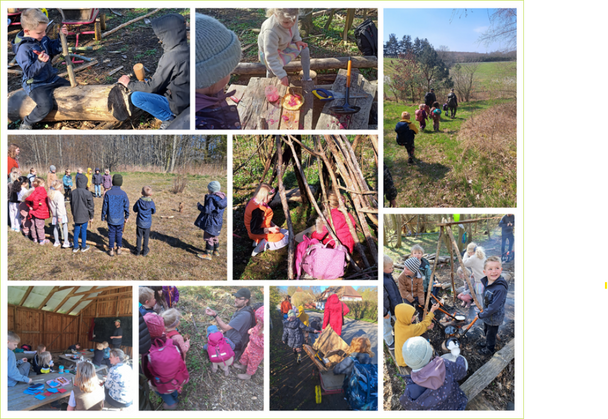
Study tour Denmark
From April 18 to 21, teachers Yvonne, Nicole, and Annemarie visited Denmark for a study trip on outdoor schooling. They toured Gjerrild-Bønnerup Friskole, which is parent-run. The visit began with a musical gathering, followed by forest activities where children chose their own tasks, such as building fires, making pancakes, and woodworking. Nicole observed a bird lesson with middle-grade students, involving both indoor and outdoor activities.
At Feldballe Friskole, they explored hills with younger students engaged in woodwork and nature education. Midtdjurs Friskole started with a communal opening, including singing and massages, then moved to forest-based activities and collaborative lessons, ending with tasting lemon ants. These inspiring days provided numerous ideas for enhancing their own outdoor education programs.
Grenaa
18-4-2023
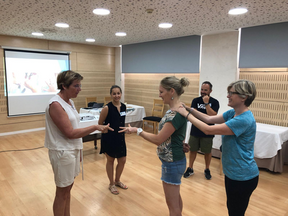
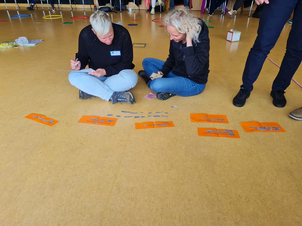
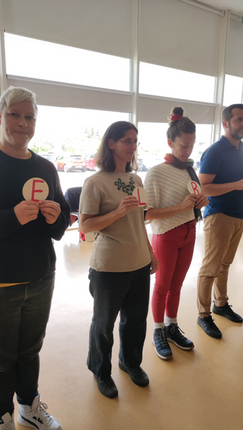
Study tours Iceland and Spain
In June, two groups of colleagues went on study trips to Iceland and Spain for the Outdoor Activities course by Smart Teachers Play More (STPM). STPM trainers travel between Iceland and Spain, and teachers in both locations shared the same trainer. Both teams returned enthusiastic and inspired, having tested new teaching methods for outdoor learning, enhancing cognitive, physical, and social skills. They learned to address different learning styles by combining visual, auditory, reading, writing, and movement activities. They also introduced mindfulness exercises, helping children improve focus and relaxation. Additionally, they explored using stories and sensory play to make learning engaging without relying on worksheets or textbooks. These new ideas have already been implemented and will continue to develop in the coming school year, proving the trips’ value for their students at Wiene.
Alicante/Mosfellsbær
11-6-2023/18-6-2023
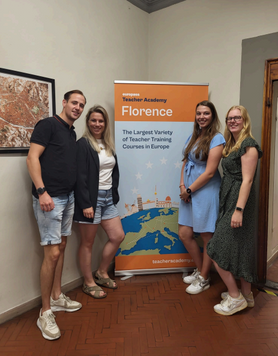
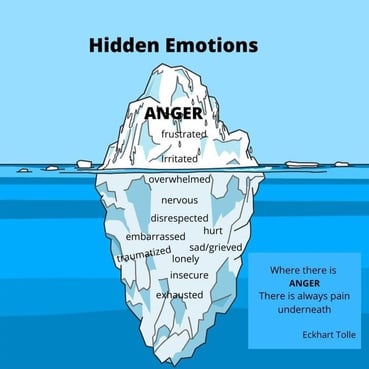
Successful Strategies for Teaching Students with Special Needs in Every Classroom
We learned to reduce demands and requests around the child to minimize conflicts, avoid arousal triggers that can escalate situations, and be mindful of our non-verbal behaviors, attitudes, and body language to prevent issues. These strategies will help us create a more inclusive and supportive classroom for students with special needs, manage challenging behaviors more effectively, and provide a positive learning experience for all students. We're excited to apply these practices in our classrooms to better support our diverse learners.
Florence
25-9-2023
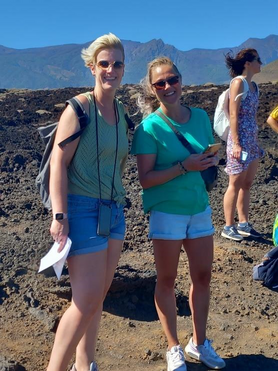
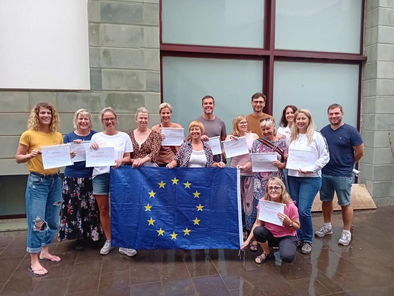
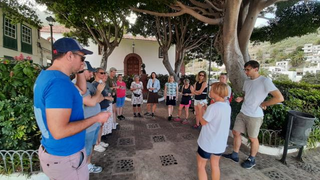
Expertimential Learning in Tenerife: Through Nature and History
The course took place in Tenerife. The first and last day we had classes at the Language Campus in La Laguna. Tuesday, Wednesday and Thursday, we had classes on location in nature. We really liked this variety with different activities! We learned about the history of Tenerife, had a workshop from a local about whistling language and herdsmen jump. We also had an excursion to the badlands. Here we learned about the different types of lava. In addition, we visited a museum, "Naturaleze y el Hombre." A museum about the life of the aboriginals in Tenerife.
It was a fantastic week in which we both learned a lot, both for our education and personally from enthusiastic teachers in a nice group with teachers from Iceland, Hungary, Germany and Romania.
San Cristóbal de La Laguna
29-10-2023
